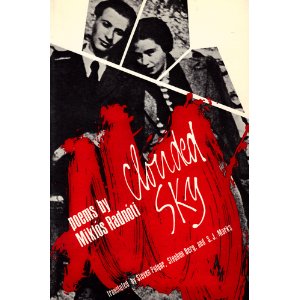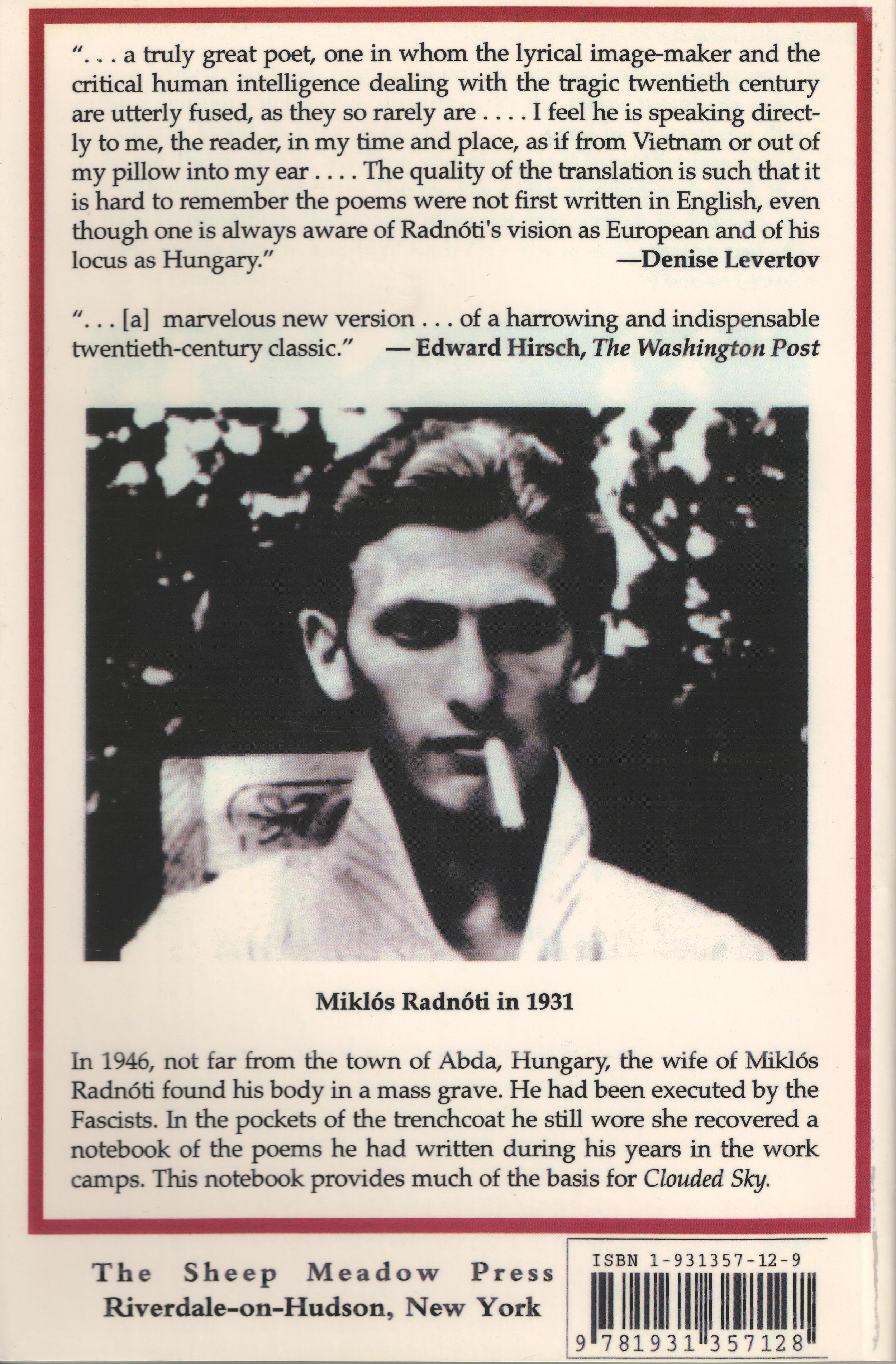In 1946, when MIKLOS RADNOTI'S wife found his body, in the pockets of his trenchcoat was a notebook that contained all the poems the great Hungarian poet had written during his internment at a copper mine in Bor, Yugoslavia.
Radnóti was born a twin in Hungary in 1909. After receiving his diploma from the University of Szeged, he went to Budapest to teach, but despite his qualifications he was never appointed to the positions he deserved because he was a Jew. He spent some time in Paris (where he began writing the first poems for Clouded Sky), supported himself by translating and published many of his poems in major literary periodicals.
With other “progressive” intellectuals, Radnóti was at the center of opposition to the “conservative” regime of Regent Miklós Horthy, which allied itself with the Nazis in World War II. Beginning in 1940, he was sent to a number of forced labor camps. At one point he worked along the Ukrainian front, arming and disarming explosives; finally in 1944 he was taken to Bor, southeast of the Hungarian border. From there, the Fascists drove him and the rest of the prisoners across Hungary to the town of Abda, in the northwest of the country, where, no longer useful, the workers were beaten to death and thrown into a mass grave.
Surviving prisoners had smuggled copies of his poems out of the camp, but the five written in his last days, “Roots” and postcards 1 through 4, were unknown until his wife discovered them in his grave.
“…a truly great poet, one in whom the lyrical image-maker and the critical human intelligence dealing with the tragic twentieth century are utterly fused, as they so rarely are . . . The quality of the translation is such that it is hard to remember the poems were not first written in English, even though one is always aware of Radnóti’s vision as European and of his locus as Hungary.”—Denise Levertov



